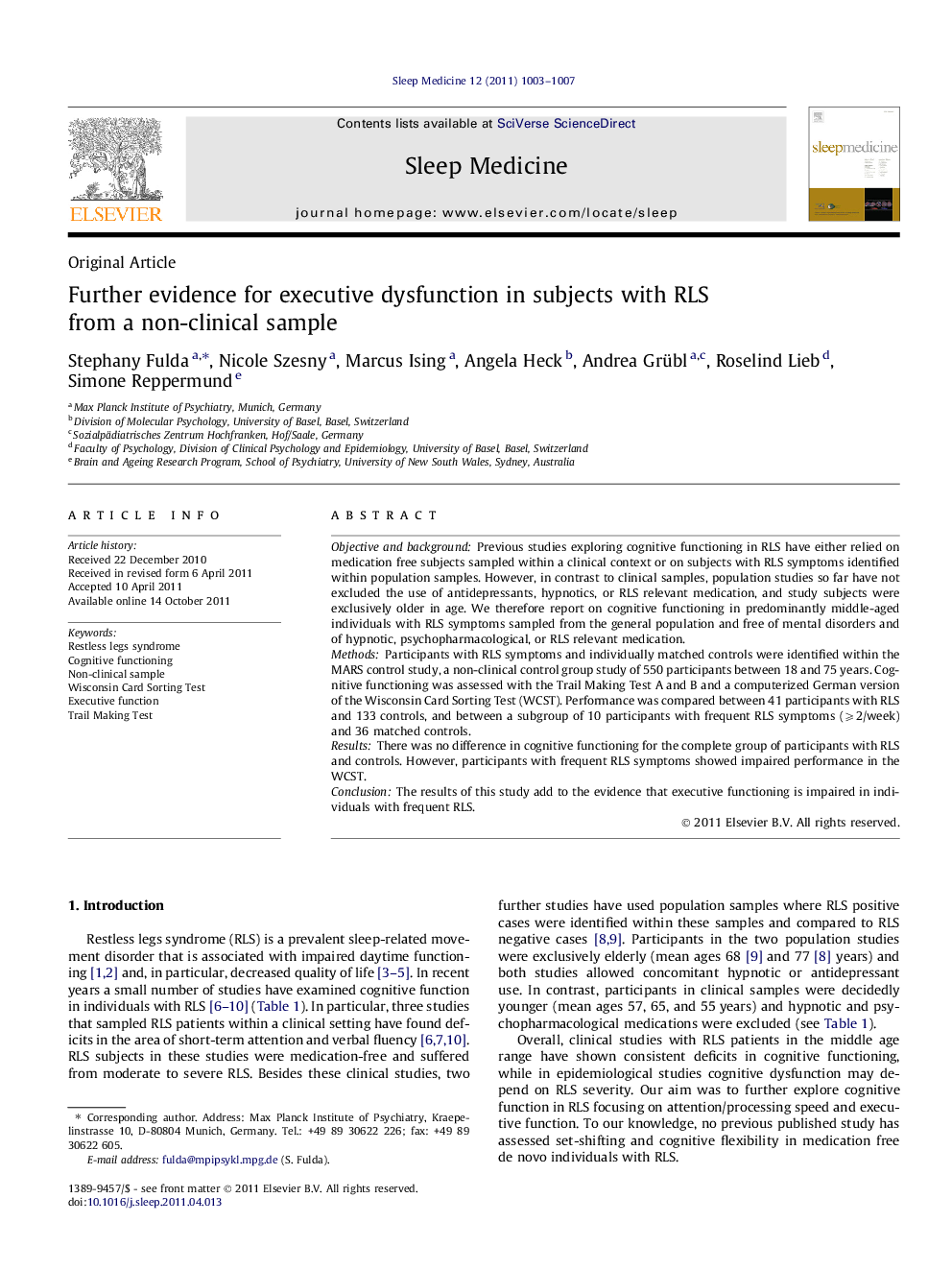| Article ID | Journal | Published Year | Pages | File Type |
|---|---|---|---|---|
| 3176625 | Sleep Medicine | 2011 | 5 Pages |
Objective and backgroundPrevious studies exploring cognitive functioning in RLS have either relied on medication free subjects sampled within a clinical context or on subjects with RLS symptoms identified within population samples. However, in contrast to clinical samples, population studies so far have not excluded the use of antidepressants, hypnotics, or RLS relevant medication, and study subjects were exclusively older in age. We therefore report on cognitive functioning in predominantly middle-aged individuals with RLS symptoms sampled from the general population and free of mental disorders and of hypnotic, psychopharmacological, or RLS relevant medication.MethodsParticipants with RLS symptoms and individually matched controls were identified within the MARS control study, a non-clinical control group study of 550 participants between 18 and 75 years. Cognitive functioning was assessed with the Trail Making Test A and B and a computerized German version of the Wisconsin Card Sorting Test (WCST). Performance was compared between 41 participants with RLS and 133 controls, and between a subgroup of 10 participants with frequent RLS symptoms (⩾2/week) and 36 matched controls.ResultsThere was no difference in cognitive functioning for the complete group of participants with RLS and controls. However, participants with frequent RLS symptoms showed impaired performance in the WCST.ConclusionThe results of this study add to the evidence that executive functioning is impaired in individuals with frequent RLS.
